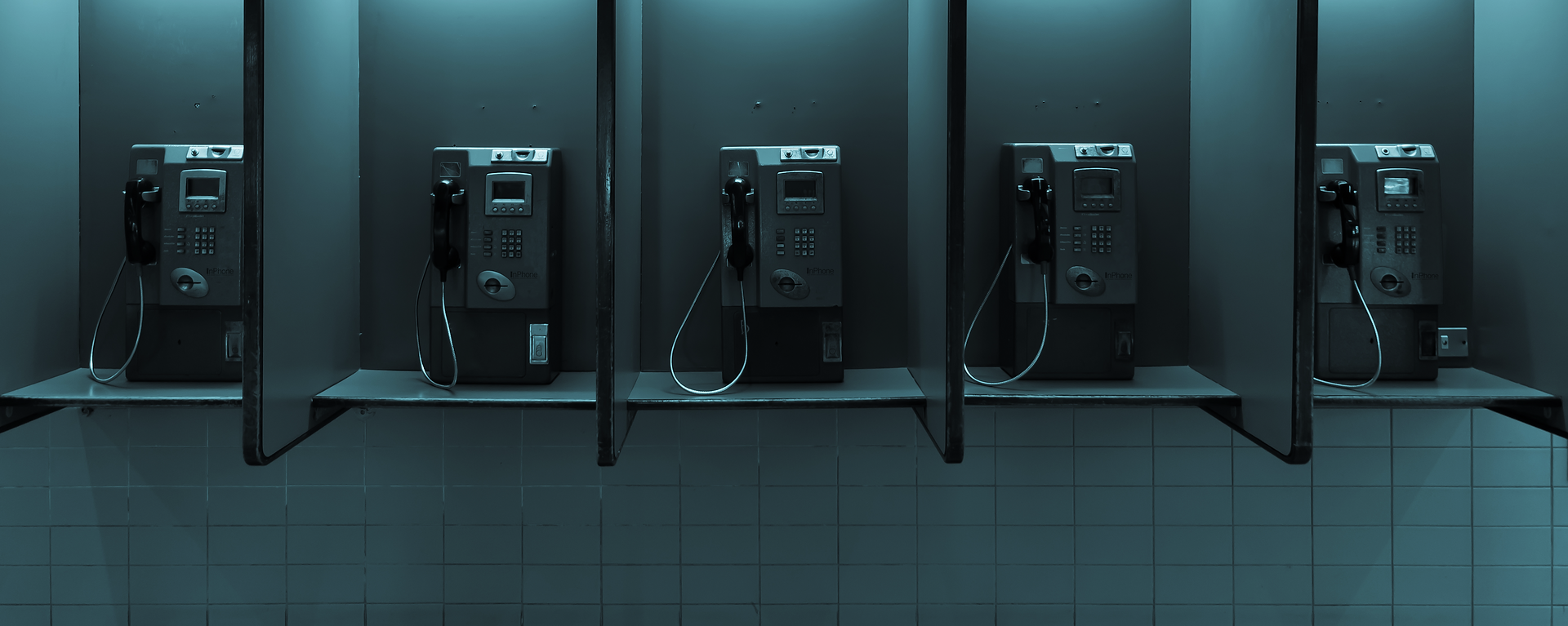With visitation on hold, what is the future of inmate communication?
- markm555
- Nov 11, 2021
- 3 min read
It has been a long 18 months since Covid-19 first appeared. Thankfully the world is showing signs of recovery. The number of cases is falling and, global restrictions are being lifted. But take one look at what is happening inside correctional facilities, and you will see that the story is very different.

Due to the unique nature of correctional facilities, the virus is in full force and spreading like wildfire, and face-to-face visitation feels like a distant memory. The risk of infection is still way too high and, it may be a long time before inmates can communicate freely with the outside world again, so if in-person visitation is a thing of the past (for now), what is the future?
The importance of visitation.
Visitation is a crucial part of an inmate's rehabilitation. Not only does it keep them connected with the outside world and society, but it also helps to maintain relationships with loved ones.
Maintaining close contact with their family and friends gives inmates hope. It offers them a glimpse of the new life they can lead when they leave the facility, providing them with an added incentive to behave well and focus on their rehabilitation.
The benefits of close contact don't end when inmates leave the facility. There is a distinct correlation between communication with friends and family and lower recidivism rates.
So when visitation was limited and in some facilities removed altogether, prison services had to expect the worse.
The fallout
Little visitation, added confinement, and no communication with the outside world created the perfect storm for correctional facilities. Inmates became stressed, anxious, and worried about the situation, which led to violence, unrest, and even riots.
It was clear that something had to change, but how?
A new way to communicate
Prison services had to confront this problem and quickly. Tensions were high, and the possibility of unrest was a real threat. Prison communication has advanced very little in comparison with the wider world, so the options were limited.
Some facilities took the brave move to make voice calls free. Others went one step further and introduced video calling software.
Only time would tell if these were long-term solutions.
A win/win solution
As the months passed and the inmates adapted, it became clear that finding a balanced solution that served both parties was extremely hard to find.
On the surface, the unlimited, free calls on existing prison phones seemed to be the perfect solution for prison services. Their routine wasn't affected at all, and the inmates were also enjoying a bit of freedom. The problem, however, was bubbling under the surface. Without a specialized phone system, inmates could call whoever they liked, unmonitored, giving them access to their old criminal ways.
If phone calls were great for prison services, video calls were the exact opposite.
Without the proper structure in place, prison services relied upon consumer products to bring this solution to inmates, and the logistics proved to be a big problem. With unmonitored systems, there had to be a prison service member in the room at all times, and a shortage of devices left many inmates without access.
Neither solution truly fulfilled the need of inmates and prison services, and it became clear they were only temporary, short fixes that were quickly coming to an end. So, if neither of these was the future of inmate communication, what is?
The future of visitation
InPhone is a smart payphone system from BSWi, designed to aid inmate rehabilitation and put prison services back in control of communications.
Our focus was on developing technology that meant correctional facilities worldwide could offer inmates access to a secure phone system even in the most remote locations.
This solution is a win/win for inmates and prison services, with all calls recorded for future reference. Inmates get unlimited access to our secure system, and prison services can implement the system for free, blacklist dangerous phone numbers and listen in on calls live if needed.
The cost-effective nature and easy to run logistics make the InPhone a sustainable and secure option that can bridge the gap, both while visitation is limited and beyond. Connecting inmates with their families and loved ones in locations where before now it has been impossible.
If face-to-face visitation is a thing of the past, for the time being, we believe that InPhone is the future. If you would like to hear more, please drop us a line.





Comments